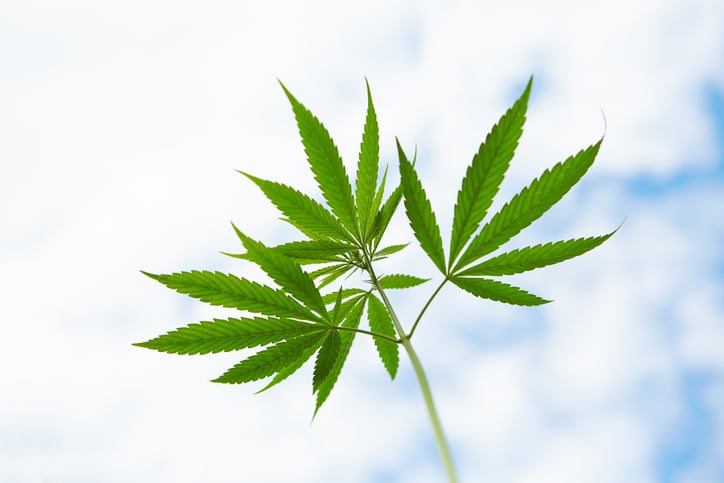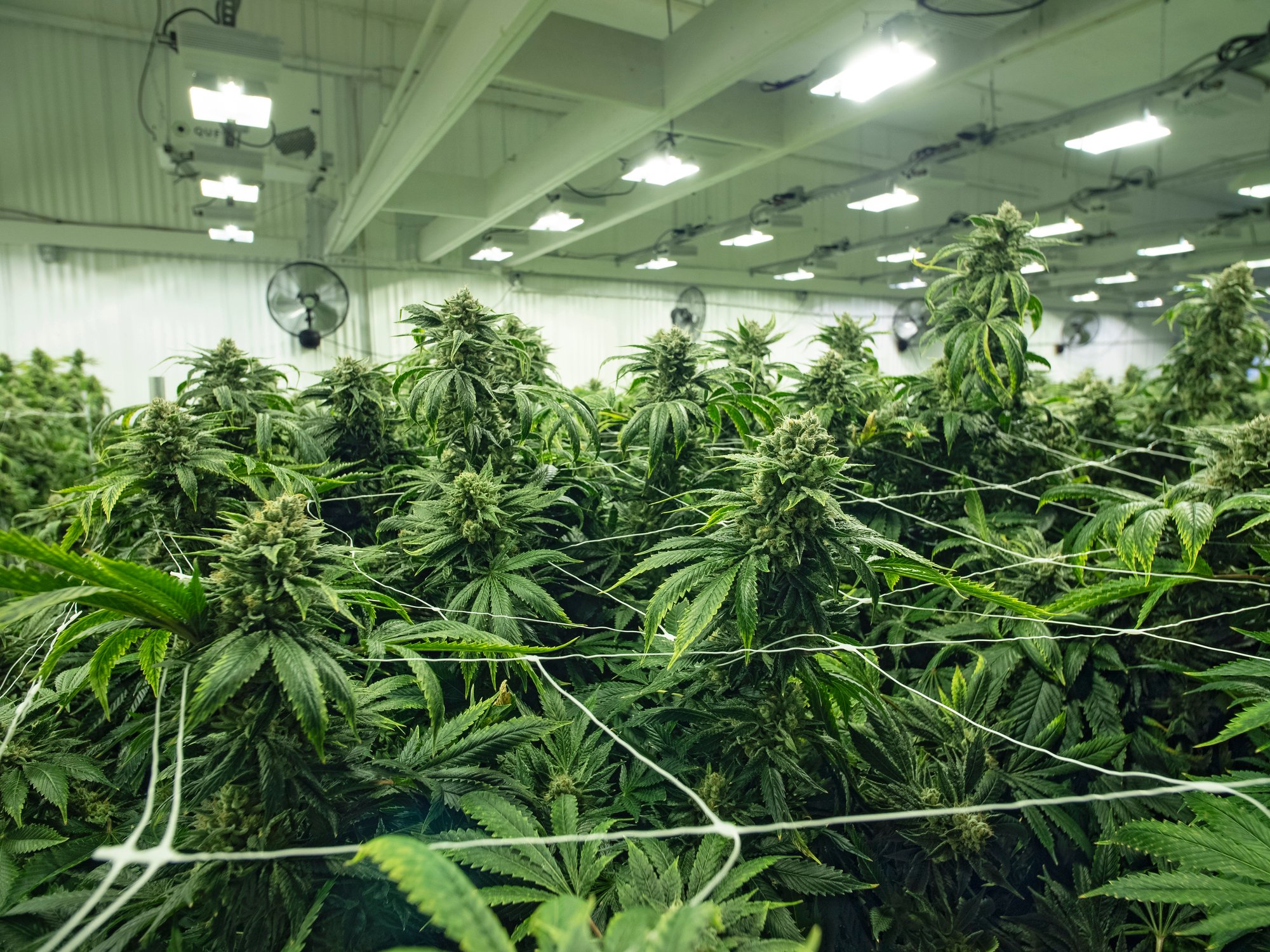The race is on among Canada's cannabis growers. In less than a month, Canada's Senate will vote on bill C-45, which is more commonly known as the Cannabis Act. If approved, it would legalize recreational marijuana throughout Canada, making our neighbor to the north the first developed country in the world to OK the sale of adult-use cannabis. It would also open the door to billions in annual revenue for growers and the ancillary pot industry.
As of this moment, approval looks like a near certainty. Conservative lawmakers who oppose legalization are in the minority, and all but one province (Manitoba) has agreed to a two-year tax-sharing agreement with the Canadian federal government. It would appear that the I's are dotted and T's are crossed, and now it's just a matter of time before the Cannabis Act is signed into law.

Image source: Getty Images.
With adult-use sales expected to commence in either August or September -- i.e., eight to 12 weeks after the Cannabis Act becomes law -- growers have worked feverishly to expand their capacity as quickly as their balance sheets will allow. Having production ready to go when the proverbial green flag waves on adult-use cannabis could be the key to securing lucrative long-term deals, as well as forging emotional attachments with domestic consumers. Plus, with Canada among a very select group of countries able to export weed to countries where medical marijuana is legal, growers are providing for more than just the domestic Canadian market.
Welcome to the club, Emerald Health Therapeutics
Last week, yet another grower essentially cemented itself as a major marijuana player. Last Tuesday, May 2, British Columbia-based Emerald Health Therapeutics (EMHTF +0.00%) announced an acquisition that'll help it boost its production capacity, putting it on target to surpass 100,000 kilograms of production when at full capacity.
The $70 million deal (CA$90 million), which will be funded half with cash on hand and half with common stock, sees Emerald Health acquiring Agro-Biotech, a Quebec-based medical cannabis producer with a cultivation license and a facility capable of 75,000 square feet of production capacity. Thus far, Agro-Biotech has built out 20,000 feet of capacity, but is expected to have 50,000 square feet complete by the end of this year. Emerald Health anticipates generating 3,000 kilograms from Agro-Biotech in 2018, with the facility exceeding 10,000 kilograms of production when complete and fully operational.

Image source: Getty Images.
Aside from this deal, Emerald Health is already working on two major projects. First, it's building out its headquarters and a 500,000-square-foot hybrid indoor and greenhouse facility in Metro Vancouver, B.C. Its other major grow project is a 50-50 partnership with Village Farms International (VFFIF +1.82%). This venture, known as Pure Sunfarms, has a 1.1-millon-square-foot facility currently being retrofitted from tomato production to cannabis growing in the Delta, B.C. region. Expectations are for 46,000 kilograms of production by 2019 and more than 75,000 kilograms of annual dried cannabis yield when fully operational.
Conservatively, Emerald Health looks to be on track to generate around 125,000 kilograms a year when at full capacity.
... but it won't be a cakewalk
However, being big doesn't guarantee success in a highly competitive industry that truly has no precedent.
To begin with, Emerald Health is facing no shortage of competition. Also expected to yield in excess of 100,000 kilograms of dried cannabis a year are:
- Canopy Growth Corp.: approximately 500,000 kilograms
- Aurora Cannabis: 430,000 kilograms
- Aphria: 230,000 kilograms
- MedReleaf: 140,000 kilograms
- OrganiGram Holdings: 113,000 kilograms
- Hydropothecary: 108,000 kilograms
And it's not just about quantity. It's about when the product will be ready for sale. As noted, Emerald Health will be busy working into 2020 to complete its facilities and ramp up production. Meanwhile, Aurora Cannabis and Canopy Growth Corp. will be bringing a significant amount of their supply to market before Emerald Health. The risk Emerald Health runs is in losing out on those lucrative long-term supply deals if its greenhouse completion dates trail its peers.

Image source: Getty Images.
There's also the ongoing risk of oversupply. Even with more than two dozen countries having legalized medical cannabis, there's no certainty that export demand will be high enough to offset what seems like almost certain domestic oversupply. By 2020, growers could be producing well over 2 million kilograms of marijuana a year. Yet, domestic Canadian demand might only be around 800,000 kilograms. If this excess supply isn't exported, it could crater the per-gram price of pot, hurting margins in the process.
And, of course, there's always the threat of dilution. As noted in Emerald Health's press release, half of its Agro-Biotech transaction will be funded with a share issuance. Furthermore, its existing projects have been fueled by capital raised through bought-deal offerings. These actions work to increase its outstanding share count, diluting the value of existing shares, and making it even harder for the company to turn a meaningful per-share profit.
Given that Pure Sunfarms has 3.7 million square feet of adjacent land leased next to its 1.1-million-square-foot facility currently being retrofitted, Emerald Health, and/or its partner Village Farms, may wind up being an acquisition target for a bigger player. But until we have answers to these concerns above, betting on an acquisition isn't exactly a prudent investment strategy.







